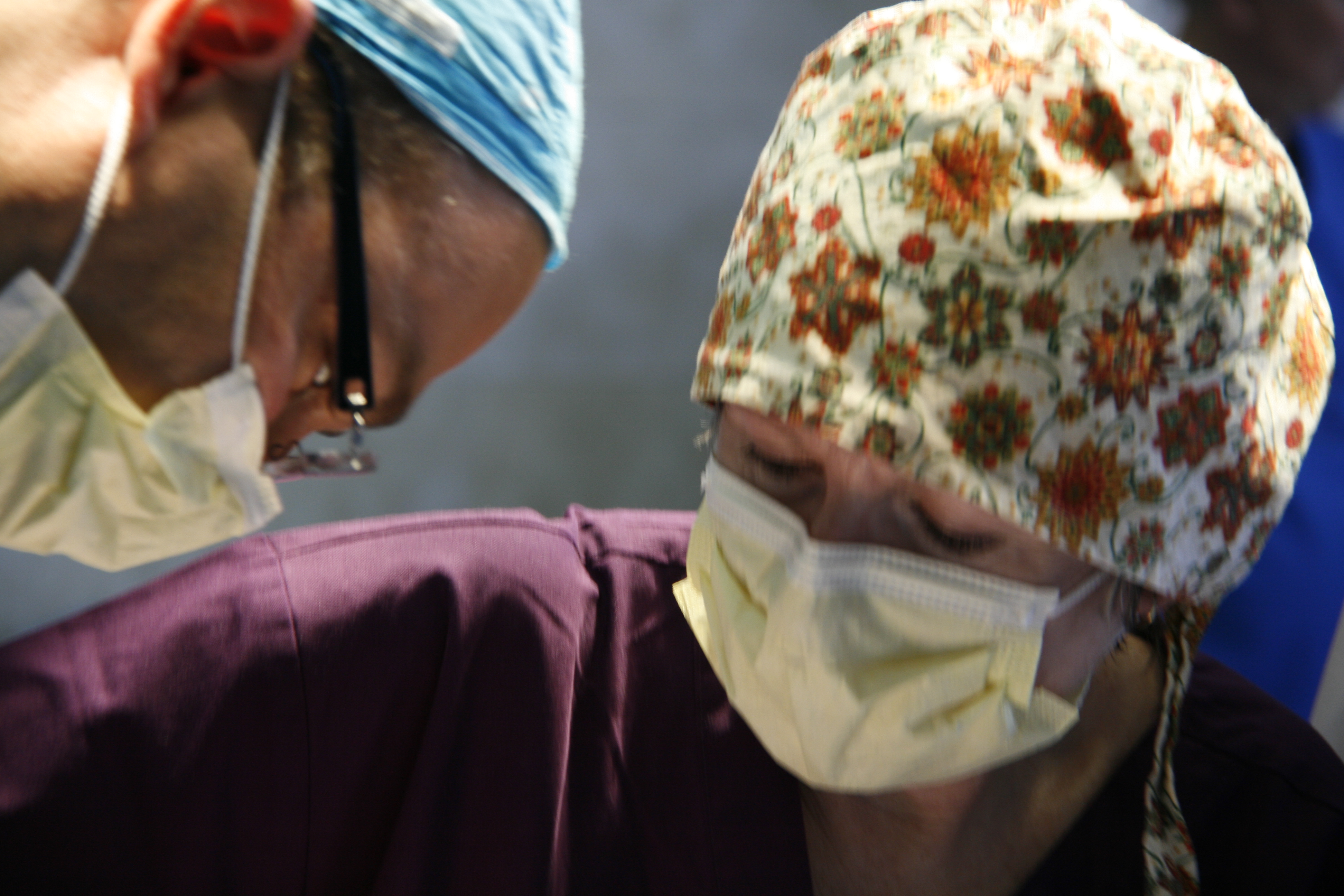Working in an OR in a foreign country can be challenging, but is always interesting. Our practices differ, and we have varying ideas of how-limits the OR should be and what one should wear in it. But ultimately, we are there for the patient, and that is what unites us.
The language barrier is one problem we face. We have learned to make “flash cards” with the help of an interpreter for the basic information we need to share: “Is this sterile?” “saline”, “hello, my name is…” etc. Trying to learn each other’s language is fun, and by the end of our stay, we all know a few phrases. An observer remarked that it appeared as if I understood Armenian and my scrub nurse understood English, as she asked me for supplies during the procedure. Even though I didn’t understand a word of what she said, I knew the procedure and what suture was next. Although we don’t speak the same language, we both speak OR. The scrub nurses here in Armenia were top-notch, and by the end of our first day of surgery, they were able to anticipate exactly what came next.
Sterilization of supplies is another consideration. In a modern OR in the US, supplies are readily available and instrument trays can be cleaned and sterilized in a short time. In the countries we visit, this is not always so. Many hospitals do not have conventional autoclaves and sterilize with heat or other methods, which can take much longer. We get creative in stretching our instruments to the last day.
The challenges of doing surgery in foreign lands were many, but they are not worth dwelling upon, because that is not our purpose for being there – we are here for the children and adults who need our services and we love every minute of it.
Armenia is a lovely country, the city of Yerevan very cosmopolitan. The people we have met at St. Grigor’s Medical Center are amazing – never before have I met warmer, a more welcoming of people. As we busily unpacked our supplies on day one, they made us stop for “coffee.” We were then led to the dining room of the hospital, where the table was lad with fruit, pastry, and of course coffee was served. We were overwhelmed, and so touched by their consideration and heartfelt thanks for coming.
The rest of our visit consisted of 12 and 14 – hour days of surgery, clinics and follow-up. Although the days were long, our Armenian nurses were cheerful and worked just as long and hard as we did. Each day, the Armenian doctors and residents became more skilled in the procedures, and at they end of the week, they were doing the surgery with Dr. Horowitz and Dr. Nichter assisting.
And then there are the kids – beautiful, big-eye, children, some of them orphaned, some given up by their parents because they were born with deformities. all of them adorable. I love seeing them playing in the hospital corridors or being carried by their mothers, especially a day or two after their surgery when you can really see the difference in their smiles. Their parents will sometimes give a nod of thanks, too shy to address us directly, but there is an understanding between us that their child – every child – is special and deserves our best efforts.
Irene Landry, RN
OR Nurse

